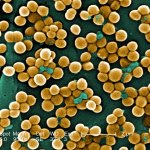
News • E. Coli
The ideal transport vehicle for next-gen vaccines?
Most people recoil at the thought of ingesting E. coli. But what if the headline-grabbing bacteria could be used to fight disease? Researchers experimenting with harmless strains of E. coli — yes, the majority of E. coli are safe and important to healthy human digestion — are working toward that goal. They have developed an E. coli-based transport capsule designed to help next-generation…

























